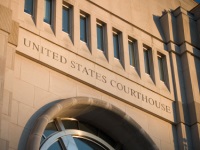In a virtual course on how to bring—or not bring—an M&A strike suit, on June 30, a Delaware Chancery Court dismissed all shareholder claims against a merger target and its acquirer, ending nearly two years of litigation. Though the allegations are familiar in the strike-suit context, the 45-page opinion which this ~$100 million merger yielded is notable for its methodical tour of Delaware fiduciary-duty law, 102(b)(7) exculpatory provisions, and so-called Revlon duties. The roadmap opinion should be required reading for directors considering a merger.
Defendants Ramtron International and Cypress Semiconductor both work in the technology industry and the two began their courtship in 2011. Though shareholder-plaintiff Paul Dent couldn’t prevent the 2012 Ramtron-Cypress marriage, he continued to hold out for a better dowry, naming Ramtron’s board and Cypress in a suit alleging that Cypress aided and abetted Ramtron’s board in breaching its duty to shareholders, and seeking quasi-appraisal of his shares. Vice Chancellor Parsons disposed of these claims, taking the time to explain in unusual detail why the allegations utterly failed. READ MORE









